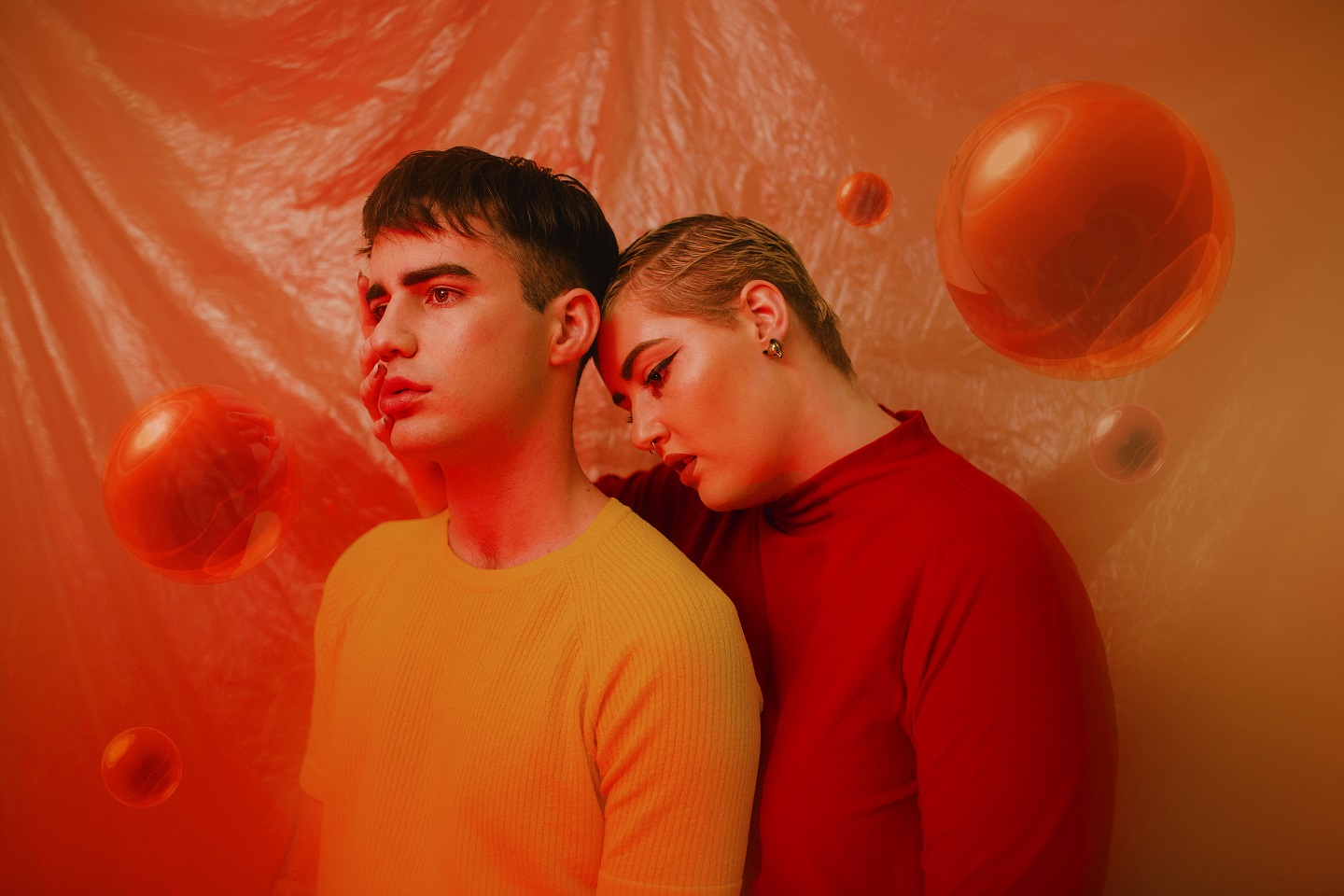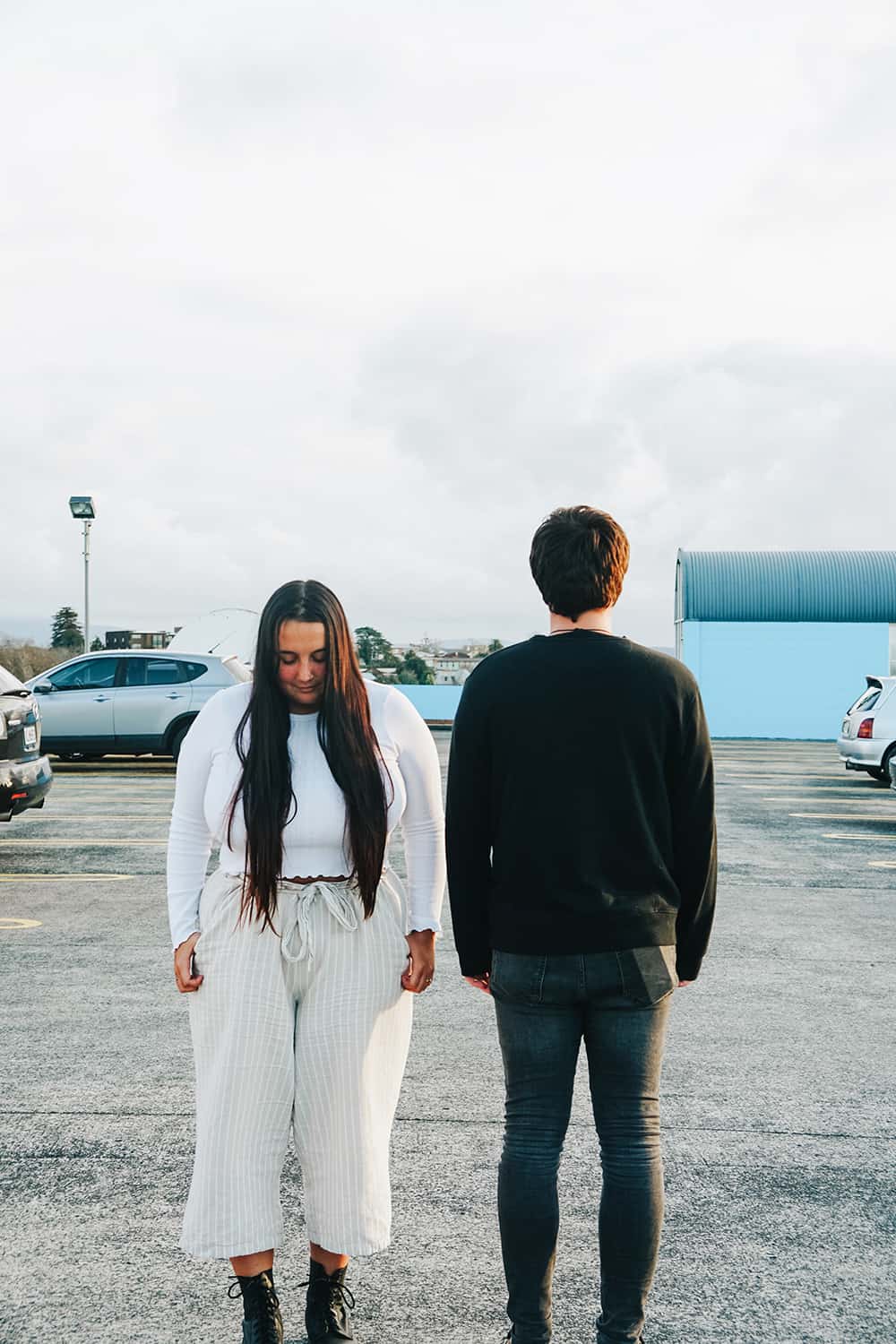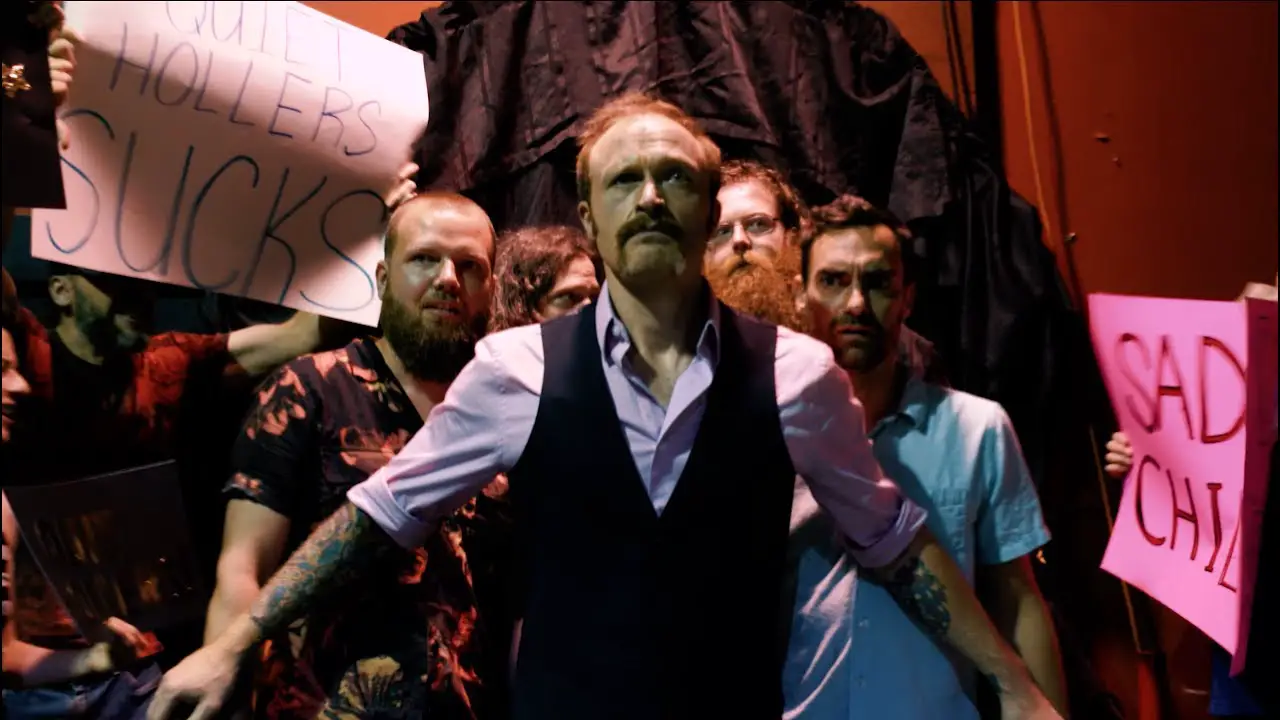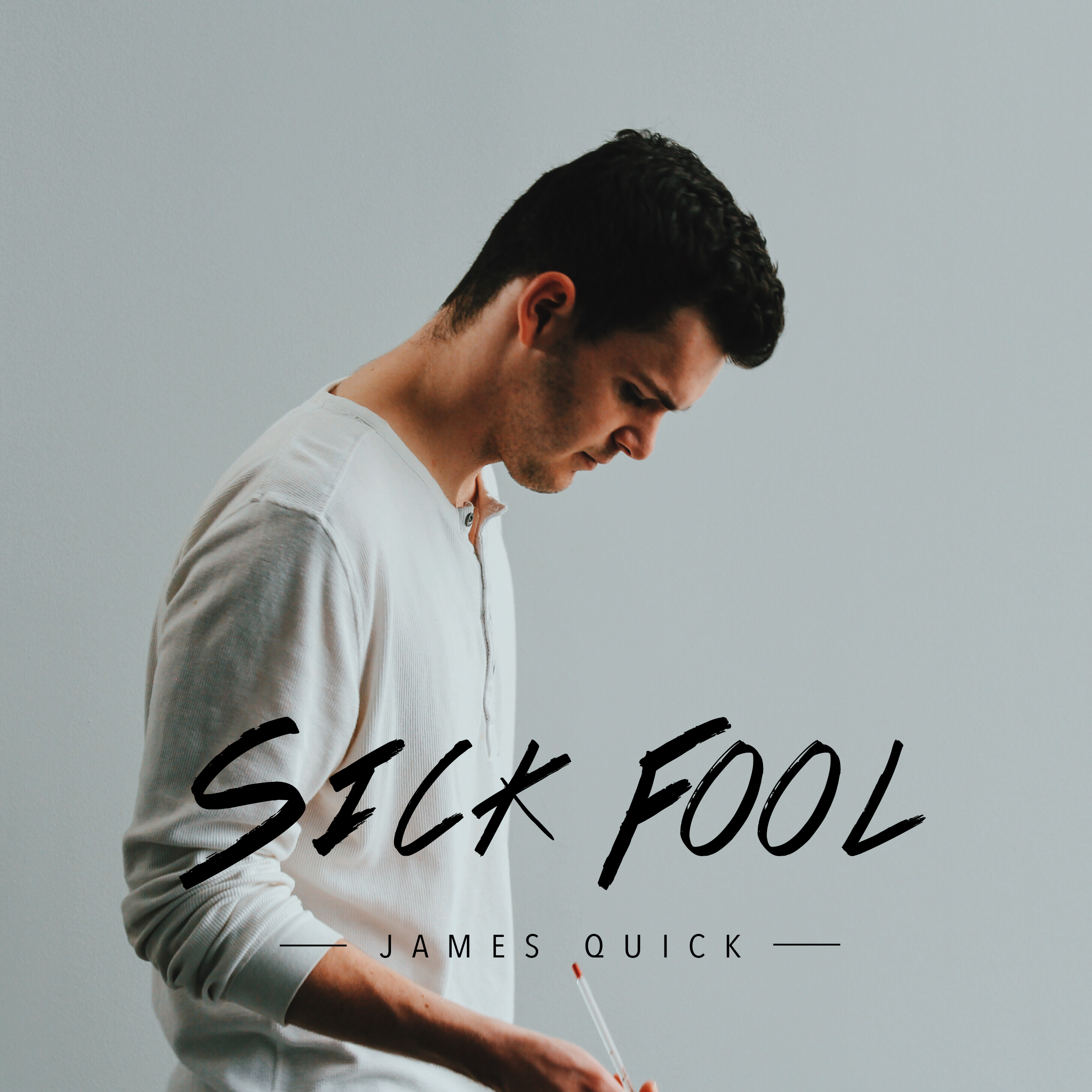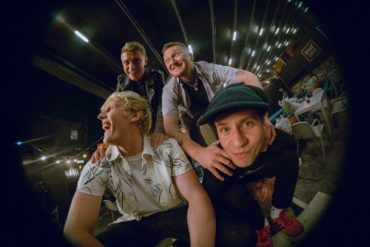With her recent EP ‘House Mouse’, Singaporean singer/songwriter Linying has laid bare her artistic process and come into her own as a creator, continuing a great arc into her prime.
Stream: ‘House Mouse’ – Linying
It’s difficult to understand what constitutes an artist in the 21st Century.
It seems reductive to all those who try, but belief in a kind of singular artistic spirit is what keeps us writing and creating music. Singaporean artist Linying has such a spirit – one that flows through into her album artwork, the decor in her home, the words she speaks, and the notes she strums.
When interviewing artists, a buy-in is necessary on both parts to truly understand the path an artist is taking and how that can be related to the world. It’s people and artists like Linying who maintain my belief in those paths, a state of search and rescue of the ideas that bounce around your life and make way into your subtleties. Our interview ranged from candid conversation to spoken word. She is a measured, eloquent presence, and one who maintains a sort of spirit throughout life and work.
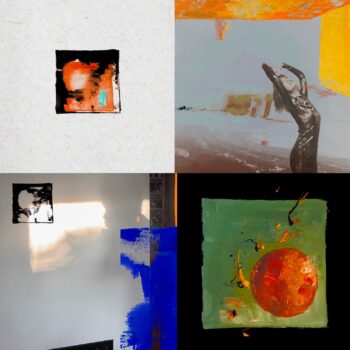
Her most recent grouped release, the late 2023 EP House Mouse, points at a shift in her musical and artistic tone. She has built albums and press releases and studio sessions before, but is moving closer to understanding what her position as a person and creative is. Her songs are a testament to what great music can be when it’s approached without hesitation, without constant second-guessing.
Songs like “Happiness” and “Porcupine” glitter, binding the four songs behind an infectious spirit of youth meeting understanding. Her answers are lined with new understanding and point toward future projects joining her years of work, not just those done in the past months. Her recent posts on social media even point toward a coming album, with one since-deleted caption asking if she could save life updates for that record.
Below are excerpts from Atwood Magazine’s interview with an artist coming into her own, creating with like-minded individuals who see the same artistic fervor you can feel in her responses. While Linying may just be entering the midday of her career, interviews like these show she’s in touch with all places music might take her still.
— —
:: stream/purchase House Mouse here ::
— —
Stream: “Happiness” – Linying
CATCHING UP WITH LINYING

Atwood Magazine: This is your first since January of last year. So definitely some time off. Have the emotions or process for you around releasing music, has that changed since you released your album? And then has that changed since the beginning of your career?
Linying: Massively. I think when I first started releasing music, I was like, what? I don’t know, 18, 19, and in school. There was just so much DIYness to it, and there was no real hope or expectation, just this intense drive and desire to put music out. I hadn’t even thought about it in terms of a career at the time because I was still in school, and you just don’t think about such things. You’re just like, “Oh, there’s something really fun that I really want to do, and you just do it.” So that, I think, was the first experience I had of putting together music and the emotions I had around releasing it. It always felt instinctive and fun and very low stakes.
I think I definitely got a bit sucked in over the years following that, in-between then and now. Because I guess when you start making a career out of it, and I think for many artists, the music and whatever measure of success you get from it, it gives you an identity. It gives you validation, like things that maybe you crave that you never got through other means, and you attach so much to that.
And then suddenly it means so much, because if you don’t do it, make it or break it, like… How do I follow up? How do I make something that’s ever going to be as good as that? Those thoughts just cannibalized my entire headspace for the years following my first ever couple of releases. And I think the debut album, There Could Be Wreckage Here, It’s one such example. The songs I still love, and I’m proud that I was able to continue to be honest in the music.
But really, that release process was a nightmare. It was switching from label to label, and it was over COVID, and everybody was saying like, “Oh, it’s a really bad time to release music, so you should wait.” And then this is the perfect cadence, and you just pick things up along the way. You start forming notions about what music business should be like, and you start learning these things. It’s just part of the job, right? And I think that really pollutes the creative process.
And even the marketing process – I love the marketing. I love promo. It’s so fun. I love doing album artwork. And social media, to me, is like a little game. And it’s fun. But suddenly, it became so laborious. It became so painful and arduous. And by the time that record came out, I think the first song on it that I’d written like the song that was written first springtime that was written in 2017.
So it had been five years from the time the first song came out to when the release was put out. And I remember that feeling of like, “Wow, I’m so sick of this shit. It sounds like I can’t help but put it out because I know that there was a point in time I was so enthusiastic about it, but I hated it, and I’m tired. And my enthusiasm was just gone. And I remember telling myself that I’m never going to put myself through this again. I’m never going to erode something that can feel good.
If I wanted to hate my job, I could be an accountant.
Speaking of press, tour, and stuff like that, it says on Spotify you've been rediscovering the joy of creating. First of all, does that feel valid to you? And then what does that tangibly look like to you when you're recording?
Linying: I think well, yeah, it’s for sure valid. And I think it looks like like me going into the studio, not thinking about whether I’m going to write something that’s suitable for this producer’s tendencies or holding on to an idea of an artist that I like, that I want to emulate, and thinking like, “Oh, maybe I should be making music that sounds like this.” All those auxiliary concerns that have plagued me for a long time.
It just looks like me going in. And sometimes when we don’t have an idea or if it’s going in a direction that someone else in the room really likes that I might not feel as natural or familiar or instinctive to me, just going along with that and not being worried that I’ll end the day with nothing. And I think there’s a lot of there’s a lot in the process of making music that can feel like a job if you make it as such. And a lot of people can approach it that way still.
But in this current state of mind and this season of my life, I find I have the opportunity to not have it feel like that. And sometimes it’s okay that it feels like that too. It’s in less inspired times. It’s okay for it to sometimes feel a bit more like work. I think that’s fine. But right now, there’s so much to there’s so much joy that’s natural that I can tap into.
It just looks like going in and we don’t need to worry too much about like, “Oh, who’s the best guitar player? Who should play this part?” Actually, one of the most one of the moments that stick out to me really strongly and vividly throughout this process was we had a studio assistant in the room one of the days, and he was just strumming along. He was hired just to wire things up and record things.
But he was strumming along to the chords of a song that we were working on, “Creature.” And he just really enjoyed just because he really enjoyed the song. And I turned around and I was like, “Oh, those voicings are really nice.” And I expected just like out of habit, I expected that, because we had two guitars in a room, someone else would be like, “Okay, I’ll go in and play that if you like the sound of that.”
But the producer was working with, Graeber, he was just like, “No, you go right in and lay that down,” even though there wasn’t that expectation that he was here to play guitar. And I remember thinking, “Yeah, we could have called a sessionist. We could have called a pro or whatever.” But there’s something to be said for honouring the provenance of that moment. And now I hear hints of that guitar and the song, and it’s so much more meaningful to me because it reminds me of that moment. I quite enjoy honouring the enjoyment.
You talked about this in your other interviews, and that story kind of hits on this too, that obviously there's an ebb and flow between creating and being a person, and having to turn that switch off to a certain extent. How important is balancing those two things for you? I see a lot of very human moments in the studio for you, like that story about the guitarist. I'm curious about the different modes between being a musician and everything else that makes you not a musician.
Linying: I actually think the distinction right now is a little less defined. It wasn’t always that way. I think for many years, I had a strong separation between what I do for work and then who I am outside of it. But I don’t know. Ever since moving here, I find that it’s so indistinguishable right now. I don’t think it’ll always be this way, but I think part of why that’s the case is because the team that I made this EP with so it’s the four of us.
So essentially, that studio assistant, he joined the production team and has sort of become part of the band. So he played in the band during my first live show just like a couple of weeks ago. And I think it’s so cute that it came that way, because it was so unintended. And it feels like we’re just friends. And I don’t think I ever had that experience when I first started making music because a lot of it was I was just on my own. And I never went to music school.
I was never part of a music community, really. I never played in bands. I never had that quintessential high school friends in a band experience. So I think that’s why the distinction was always so obvious before because this was like my hobby that I did on the side that was separate from me being a history major in school.
These identities were very clearly demarcated. And then I guess as I moved a little bit further on, it then became like work life and real life. But now when the personal and the professional start bleeding more and more into one another, we go into a session not feeling like the familiarity also means that you don’t feel the pressure to be like, “Okay. I need to act in a way that’s appropriate and like, okay, let’s get to work.” Or the formalities and all that kind of fades away and becomes a bit more redundant, because you’re naturally asking the person you’re with about their day and about their week.
And then the conversation goes into different territories that might not be productive, really. But I just keep getting more and more reaffirmed that I keep being rewarded for this process. We talk about things that are outside of the intention of making a song, and these things make their way back into the song later on when we were like, “Oh, that’s the reason why this song is turning out like this is because we had this conversation a couple of hours ago about something that you were going through.” I think it’s like this constant reinforcement of every time I chase instinct and I chase something that’s senseless or just go with something because I feel like it, it ends up leading to an outcome that’s positive and that feeds whatever I would once couch as productive.
So the more this happens, the more I feel like, “Okay, when it comes to music, this is definitely not going to be true for every other profession or every other arena.” But when it comes to things like music and art, which we do because in essence, they’re senseless, right? There’s no need for them. You don’t need these things to survive, but they really do give life meaning. It’s like friendship. You don’t need it.
But don’t you feel like there are so many times where you’re like, “What would I do without these people in my life?” Right? So these are the things that I feel tap into something beyond what we can control because they’re so tied inextricably to matters of the heart and feeling right, and uselessness, like something that just has no use.
And that’s why I think trusting something without necessarily knowing the outcome that it’s going to give is so essential to this process. And that’s the biggest lesson I’ve learned this year, to not know where it’s going to lead or to not anticipate it. But sort of just tuning into an inner compass that I believe we all have, even though at times, you might be more blind to it than others.
And I certainly remember times where I was completely out of touch with what felt right and what didn’t. And I would use rationality and intellect to kind of make sense of a lot of things. But I think there’s a deeper knowing that’s inside of us that knows generally what’s sort of right.
And yeah, I think this recording process of chasing that and seeing the fruits of it has really then made what’s personal and what’s professional so difficult to distinguish because when I really think about it, I’m going to be spending the rest of my life doing the exact same thing whether or not I get paid for it. Yeah, it’s not a means to an end.
I don’t know if it was Plato who said that you’re only entitled to the labour, but not the fruits of your labour. And that’s kind of how I feel about it.
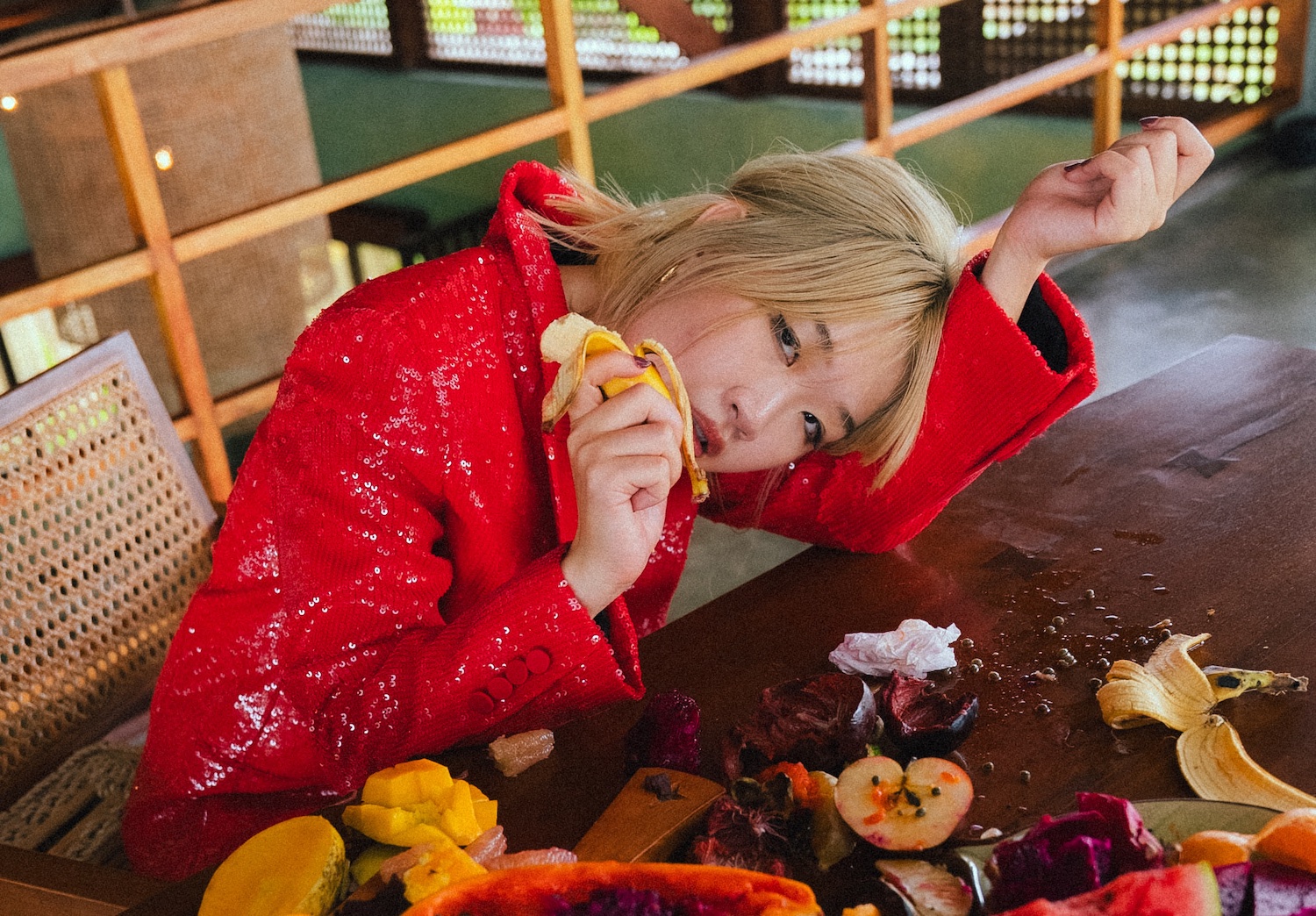
But I think one thing I can get close to that is talking a bit about the band and the people that you made this project with, because it's very clear that you got a lot out of not just making this, but making this with them. Can you give a sense of not only what that was like with them, but also the setting of that process?
Linying: I remember first moving here. And actually, the person that inspired me to realize that I could really make a life in LA is one of the guys in this band. His name is Jordan Blackman. So he spent 10 years touring with Toro Emoi and has a really cool illustrious career. And this had just come off the back of him. One of the songs that he worked on is a Leon Bridges song that got nominated for a Grammy.
And we met at a riding camp years ago in Australia, but never really became friends. We were just like Instagram friends. So when that happened, I just said, “Oh, congratulations. That’s wonderful.” And he said that he had spent a lot of time listening to there could be wreckage here in my last record. And if you ever wanted to work remotely, let me know.” And I said, “Oh, what about not remotely?” And that sense of play kind of kick-started this whole thing.
So I decided, at the time, I didn’t know what the label situation was going to be, but I decided, “Okay, I’m just going to I can do a plane ticket. I can come to LA for like a month.” And so I did that. And it was like a whole new world of sessions that I didn’t realize existed because previously, I think coming from a lot of major labels in Singapore, there’s a lot of there’s just a lot of red tape, and there’s always like a big distinction between artist and producer. And it’s like, “Okay, let’s set up this session.
And what kind of producers would you like? We’ll send out pictures. We’ll see who responds.” So it ended up becoming very formal. And a lot of the music, there’s a lot of tiptoeing, which is understandable amongst people you’re not familiar with. But at the same time, it just felt a little bit more transactional because it’s like people are always trying to get a hit or make sure that the song they make with you is the one that’s going to be the biggest.
There’s always that kind of expectation in the back of your mind, which leads to both sides being frustrated because one person wants to do, you just want to do different things. So anyway, with Jordan, I was exposed to this world of musicians that were just friends who just wanted to spend a day making stuff. And if it got used, great. And there’s this implicit trust that when that happens, no one’s going to fuck anybody over because they’re friends.
I think that’s the basis and the foundation of the music-making that was so eye-opening to me because I never experienced anything like that. I didn’t feel like anyone wanted to get anything out of me. It’s just like, “Oh, she’s a hang and let’s just do something fun with the time we have today.” So that was the start of it. And in putting together these sessions, he was reaching out to all the management publishing labels that he knew.
And that was how we got connected with Graeber, who is a punk producer, primarily, a genre I know nothing about, but he plays with no effects, which is like, I don’t know, apparently, a really big legacy punk band. And he has a studio in North Hollywood, and it’s like messy and gritty and kind of wild. And he’s such a character, so loud.
And I think it can be surprising for some people upon first to meet because I remember vividly one moment that really stuck out to me was like I had the song happiness that I’d written a couple of months ago, and I brought it in thinking, “I think it’ll be nice for us to work on this.” And I said, “Oh, but I really like the vocals because I spent a lot of time on them, and I want to keep them.” And he heard it and said, “No, I want to change them.” And it was just so direct and so unfiltered that it was shocking to me.
And I think I’d always appreciated people or maybe I just took a lot of pride in being sure of what I wanted. Or maybe it was just like I liked the way that it made me look to always have an opinion on something and to know exactly like, “No, this is what I want. This is not what I want. I would like this. I would not like this.” And that all just completely became really challenged in his presence because he just said exactly what he felt.
And he said it was so much ease and comfort that over time, I started realizing that, “Oh, it’s not an upfront at all. If anything, it’s an indication of how much he sees the music as his own. It’s an indication of investment.” And yeah, and that combined with the previous story I told you about the studio assistant be playing guitar on it, all these experiences made me understand then that maybe I was wrong about prioritizing the provenance of a song so much over the process of making it.
Because previously, my approach had always been, well, this is exactly what this song is about because my music is so personal and it’s a way for me to cope and process things. So I’m always thinking like there’s only one objective truth to what this song is. And that truth is tied to my experience of whatever inspired the song.
But when I saw all these new stories making their way into the second half of the music making, now this song has birds from Jordan’s patio because just before he was leaving that day in the morning, he decided to take an iPhone recording because he saw some birds on the patio, and he thought it was fun to put into the song, even though it’s not a song that is about birds, whatever, like that kind of thing. Senseless little details.
All those little things like that made me realize like, “Oh, it means where the experience came from,” that’s only half of it. And the rest of it can actually mean something, can have a meaning that’s shared by everyone who comes in at different points in the song. And that also extends to when the song is out. Whatever meaning then that song becomes for whoever plays it on the radio and whatever memory is being soundtracked by that.
That’s meaning too. So I started realizing, “Oh, okay. That’s what it is.” There isn’t just one objective thing. There isn’t only one objective truth that matters. All of them do. And they all matter in a different way to different people. And so being in that room that really honored that kind of philosophy was so liberating for me. It was just so much fun.
There were some days where we didn’t really make anything that felt great, but that’s like I don’t know. That’s like 1% of the time that we spent together. And it’s funny because there has never been less pressure in my mind about making a day count. I’m enjoying this so much that I don’t care if nothing comes of it. But in doing so, so much comes of it.
— —
:: stream/purchase House Mouse here ::
— —
Stream: “Take Me To Your House” – Linying
— — — —

Connect to Linying on
Facebook, Twitter, TikTok, Instagram
Discover new music on Atwood Magazine
© Michelle Mei
House Mouse
an EP by Linying

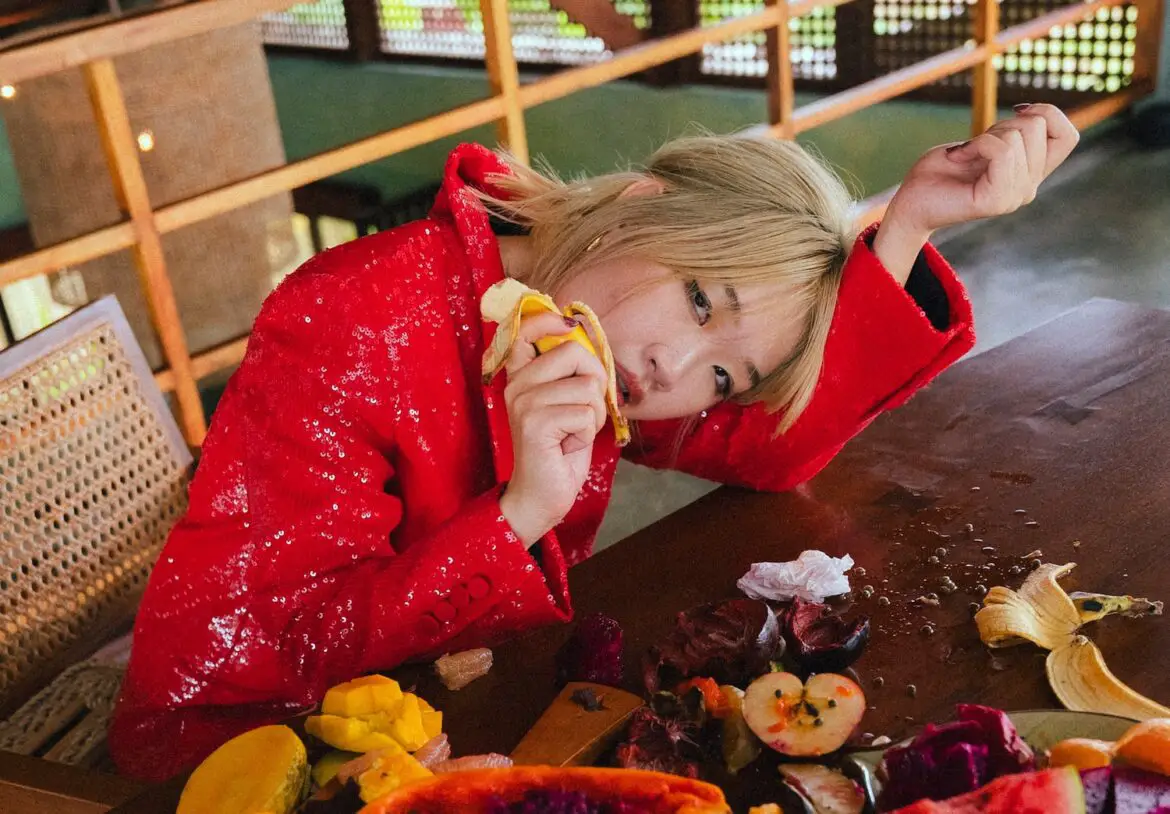
 © Michelle Mei
© Michelle Mei